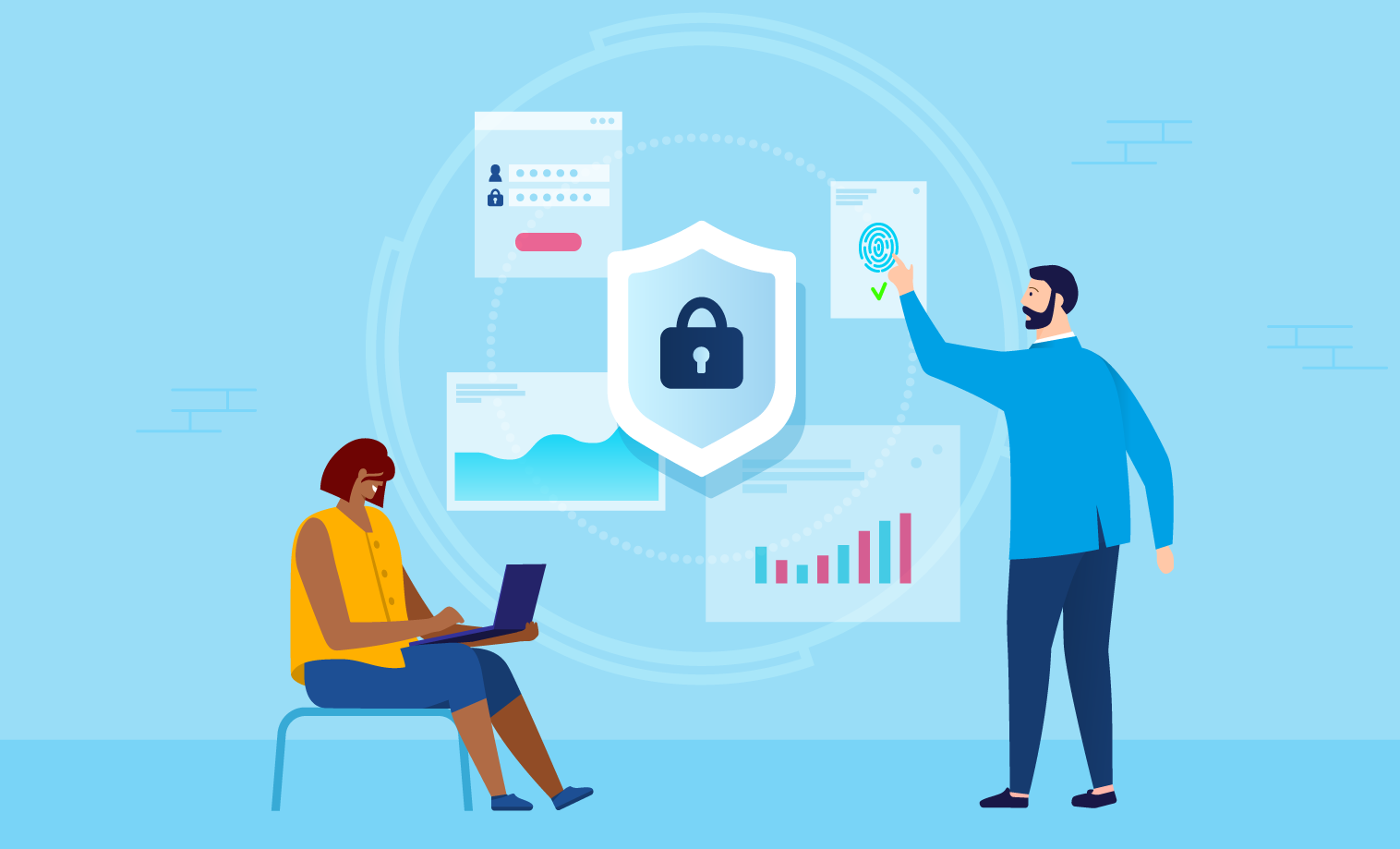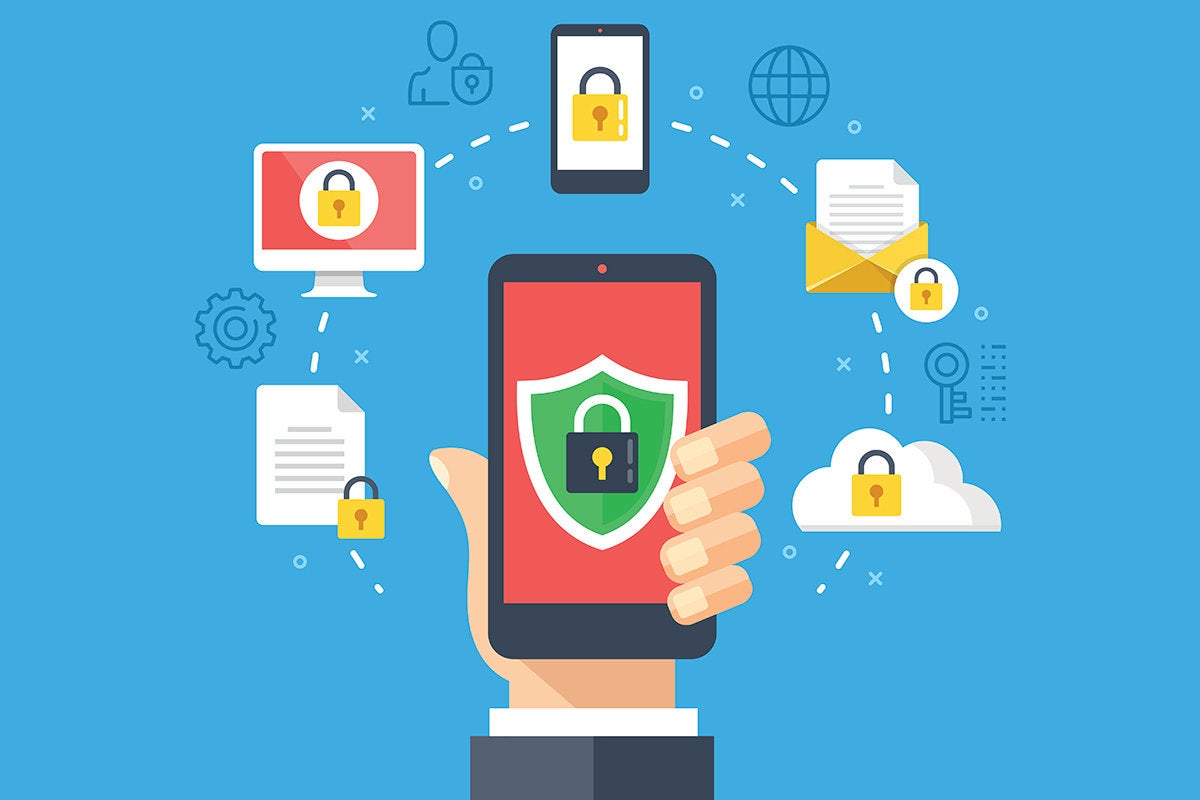Data Security in the Cloud. Cloud computing is a technology that allows users to store data and access it remotely. In other words, it will enable companies to share information and resources without physically owning them.
This is an especially useful tool in business, where many companies use cloud storage to store their data. This enables them to avoid losing important data due to hardware failure, theft, or natural disasters.
Large companies or even individuals or small businesses can offer cloud computing services. Amazon Web Services (AWS) is the world’s largest provider of cloud services.
Cloud storage is a great idea. It allows users to store their data in a central location and retrieve it from anywhere. It also protects against accidental loss or damage.
The problem is that cloud-based storage is extremely easy to hack.
It’s a common misconception that cloud-based storage is secure. As a result, people are storing all sorts of sensitive information online, including financial documents, medical records, and private photos.
While cloud-based services are generally safe, there are many ways they can be hacked. Here are some things to consider when deciding whether to use cloud-based storage.
We all love cloud computing, don’t we? It’s the future. The future has arrived, but that doesn’t mean the clouds are safe.
Data security is one of the most important things you need to consider when using cloud computing. That’s why I’m creating this comprehensive cloud data security guide.
With this guide, you’ll learn everything you need to know about the importance of data security in the cloud. You’ll also learn about different threats, vulnerabilities, and attacks that you might encounter.

Data Security in the Cloud
The cloud is a buzzword these days. It refers to the online storage of information. It’s something you’re probably familiar with since you use it daily.
You can store your documents and other files online. You can even keep your photos and videos. This is a much more convenient way to store your data than storing it on your hard drive or a USB flash drive.
There are many different types of cloud computing. Some of the most common styles include public cloud, private cloud, hybrid cloud, and community cloud.
I want to focus on the public cloud. Public cloud computing allows you to access information stored online from anywhere. It’s where most of the action is right now.
You can log into your account and see your files from any device with an internet connection.
Protect Your Data
Cloud computing is the practice of renting computing resources over the Internet instead of owning them. The idea is that you get all the benefits of a private server without the cost.
It’s a pretty simple concept. You upload your files to a central location and access them remotely via a web browser. There are many different types of cloud computing services.
The most well-known ones are Amazon Web Services, Microsoft Azure, Google Cloud Platform, and Apple iCloud. These are the services that are often used in web development.
As you can imagine, there are a ton of different vendors offering these services. You may not know which ones are reputable or trustworthy.
It’s important to do your research before signing up for any cloud computing service. I would say it’s one of the most important aspects of cloud computing.
It’s not uncommon to hear stories of people losing all their data due to poor security practices.

Manage Your Data
The cloud has become a big part of people’s lives. We use it to store our data, make payments, and access our favorite websites. But there are risks involved.
We rely on the cloud to store our personal information. That means it could be vulnerable to hackers.
Regarding online security, I recommend using services like Google Drive, Dropbox, and OneDrive. These are reputable companies with years of experience in the industry.
The Internet is a wonderful place, but it’s also a very dangerous place. Hackers can wreak havoc on the websites you visit daily, and your personal information is just as vulnerable.
That’s why we’re seeing an increased push for data security in the cloud. It’s one of the best ways to keep hackers away and a great way to protect your privacy.
But with all these benefits, deciding where to host your data can also be a bit daunting. Fortunately, many different options are available, and you can choose the one that best fits your needs.
Cloud-based data security is a topic that’s becoming increasingly important. It’s also one that’s been largely ignored by traditional cloud vendors. This has left many businesses in the dark, but some great options are now to consider.
With this in mind, you must choose a vendor to support your needs and keesecure your dataere are some key points to consider when selecting a cloud provider.
Privacy And Data
Privacy and data are big topics these days. We’re becoming more aware of what information we’re sharing online and where that information is going.
So what can you do about it? In short, you cannot do much to stop companies from collecting your personal information. However, you can limit how they use that information.
I want to start by saying that protecting your personal information online is important. There are countless reasons why you may wish to do so. Maybe you’re worried about identity theft. Perhaps you’re concerned about hackers stealing your information.
Or perhaps you’re worried about the consequences of your actions online. It could lead to unwanted spam emails. Or maybe you don’t want strangers to see your private photos.

Frequently Asked Questions (FAQs)
Q: How does the cloud make it easier to secure your data?
A: The cloud has made a few things easier to secure data. The first is that you can access your data from any place, and the second is that you have a backup. If you have a problem with your data or lose it, you can always get it back.
Q: What about if you have an important document that needs to be kept private?
A: One problem with traditional data storage methods is that anyone can look at the data in plain text. This means someone could open a file and find all your sensitive information. In the cloud, this is not possible because the cloud uses encryption. Encryption scrambles the data so that only the person who is supposed to see it can read it.
Q: How do companies protect customer data?
A: Companies have to protect their own customers’ data. There are a lot of things that can go wrong. One example of a security risk is when an employee leaves the company. If they have access to customer information, it could risk that customer.
Q: Where is all of the data stored now?
A: The data is stored across multiple clouds. For instance, it may be in one cloud if it’s personal information such as a name or social security number, and in another, financial information such as credit cards. Companies are using multiple clouds because it helps them to reduce costs.
Q: Is this more secure than storing data on a physical server?
A: Yes. It is a lot more secure because it is harder to access.
Q: What is the main benefit of using the cloud?
A: Cloud computing provides access to storage and resources without needing an expensive data center or the time-consuming task of setting up and managing IT infrastructure.
Q: Does the cloud help protect information?
A: Yes, it does. Cloud computing eliminates the need to store or back up information physically. All your information is stored online. You can access your data from anywhere in the world using a web browser.
Q: Is the cloud secure?
A: Cloud computing is very secure because of the encryption methods. It also has a firewall and network protection built into it, and cloud service providers use industry-standard security mechanisms.
Q: Do I need to worry about privacy when using the cloud?
A: Using the cloud makes sense if you value your privacy.
Myths About Data Security
I’m not sure what to do.
The cloud will save me money.
I don’t need to worry about data security because my stuff is safe in the cloud.
The cloud is inherently secure.
If you have a good password, the cloud is not vulnerable.
Data is encrypted on my laptop before being uploaded to the cloud.
The cloud is secure.
It’s OK to store data in the cloud.
Your data is safe with a third-party company.
If you lose your password.
Conclusion
In conclusion, it’s important to understand that the cloud is here to stay. While some risks are associated with cloud storage, the benefits outweigh them. So we will continue to use the cloud for everything, even data.
The only way to ensure the cloud is safe is to understand the security measures in place and implement them in our systems.
Cloud computing is one of the hottest trends in the technology world right now. So why are we still hearing about cloud data security’s dangers?
The truth is that security in the cloud is improving, but it’s still nowhere near as secure as it needs to be.
So, what are you waiting for? It’s time to stop letting your data get geten and start securing it yourself.


































